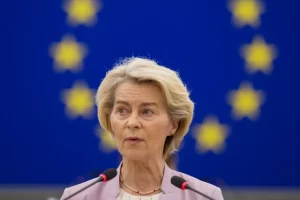Italy and Finland forge agreement against use of migration as ‘hybrid instrument of influence’

Rome: Italy and Finland presented a joint document on migration at a Foreign Affairs Council in Luxembourg, a joint session that gathered both ministers of foreign affairs and defence on April 22, showcasing a common stance on the issue within the EU.
Italy and Finland on April 22 showcased an unprecedented agreement on migration between a southern and a northern European country, presenting to EU foreign and defence ministers in Luxembourg a joint document urging to “strengthen” the fight against human trafficking and against the “exploitation” of migrants for political ends.
Helsinki is eyeing Moscow after recording an increase in the number of asylum seekers hailing from its extensive border with Russia. Rome is instead putting on the agenda key issues for Mediterranean countries: border security, controls and partnerships with third countries.
Given what is occurring in the Sahel, with the Kremlin aiming to expand its influence in the region, the strategy is also important for Africa.
The Italian and Finnish non-paper notes how “the use of migration as a hybrid instrument of influence aims at the erosion of national capabilities, security, trust and the disruption of the decision-making process of targeted governments, the European Union and NATO as a whole.”
To confront this challenge, “a proactive approach” would be necessary to “identify models and tactics of the ways in which migration is exploited as part of a hybrid campaign,” it said.
The discussion paper also said EU border agency Frontex should work in third countries, after agreements are forged with the countries’ leaderships, as part of a broader approach. It cited the memorandum with Tunisia as a potential model for future partnerships.
“We cannot leave the Sahel to Russia, to China or to Iran”, warned Italian Foreign Minister Antonio Tajani, stressing for example Italy’s commitment in “Niger and Mauritania.”
The Finland-Italy accord garnered “important and positive feedback” from representatives of the 27 member states, showing that countries in northern and southern Europe can find common ground, he noted. “It is a new political fact and it has paved the way for increased cohesion between European countries,” stressed Tajani.





